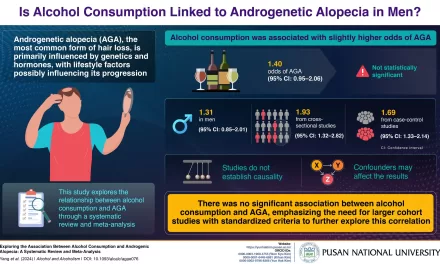March 12, 2024
New research from Binghamton University, State University of New York, highlights the dangers of using “study drugs” like Adderall without a diagnosis. The study, led by Associate Professor Lina Begdache from the Department of Health and Wellness Studies, sheds light on the potential risks associated with illicit ADHD medication use among college students.
Risks of Illicit Drug Use
The study, which surveyed 702 undergraduate college students from across the U.S., examined the use of ADHD medications alongside other psychoactive substances, including cannabis, nicotine, alcohol, MDMA, and ecstasy. Researchers found that the use of one substance often led to the use of others, suggesting a pattern of escalating substance abuse among students.
“Substance use promotes the release of dopamine, the neurotransmitter responsible for feelings of pleasure. This positive reinforcement encourages further substance use,” explained Begdache. “However, continuous activation of the brain’s reward system through drug use can lead to dependence and negative impacts on mental health.”
Impact on Mental Health
The study revealed that students who engaged in substance use exhibited generally poorer mental health and lower resilience to stress. Additionally, low-frequency substance use was associated with increased mental distress, potentially reinforcing further substance use as a coping mechanism.
“Substance use during young adulthood, a critical period of brain development, can have long-term negative effects on brain maturity and cognitive function,” warned Begdache. “These findings underscore the importance of educating students about the risks of drug use, especially on developing brains.”
Educational Initiatives
Begdache, who leads the Binghamton Student Managed Adderall Research Team (B-SMART), advocates for increased education on college campuses to address the mental health decline associated with substance abuse. She emphasizes the need for a preventative approach to mitigate the risks and improve students’ quality of life.
“Lack of awareness and peer pressure contribute to the prevalence of substance abuse among college students. Educational initiatives can empower students to make informed decisions and seek support when needed,” stated Begdache.
Moving Forward
The study, published in the International Journal of Psychological and Behavioral Sciences, underscores the importance of proactive measures to address substance abuse on college campuses. By raising awareness and providing resources for students, universities can play a crucial role in promoting mental health and well-being among their student populations.
As the conversation surrounding substance abuse continues, researchers like Begdache are committed to advancing understanding and advocating for evidence-based interventions to support student health and success.












